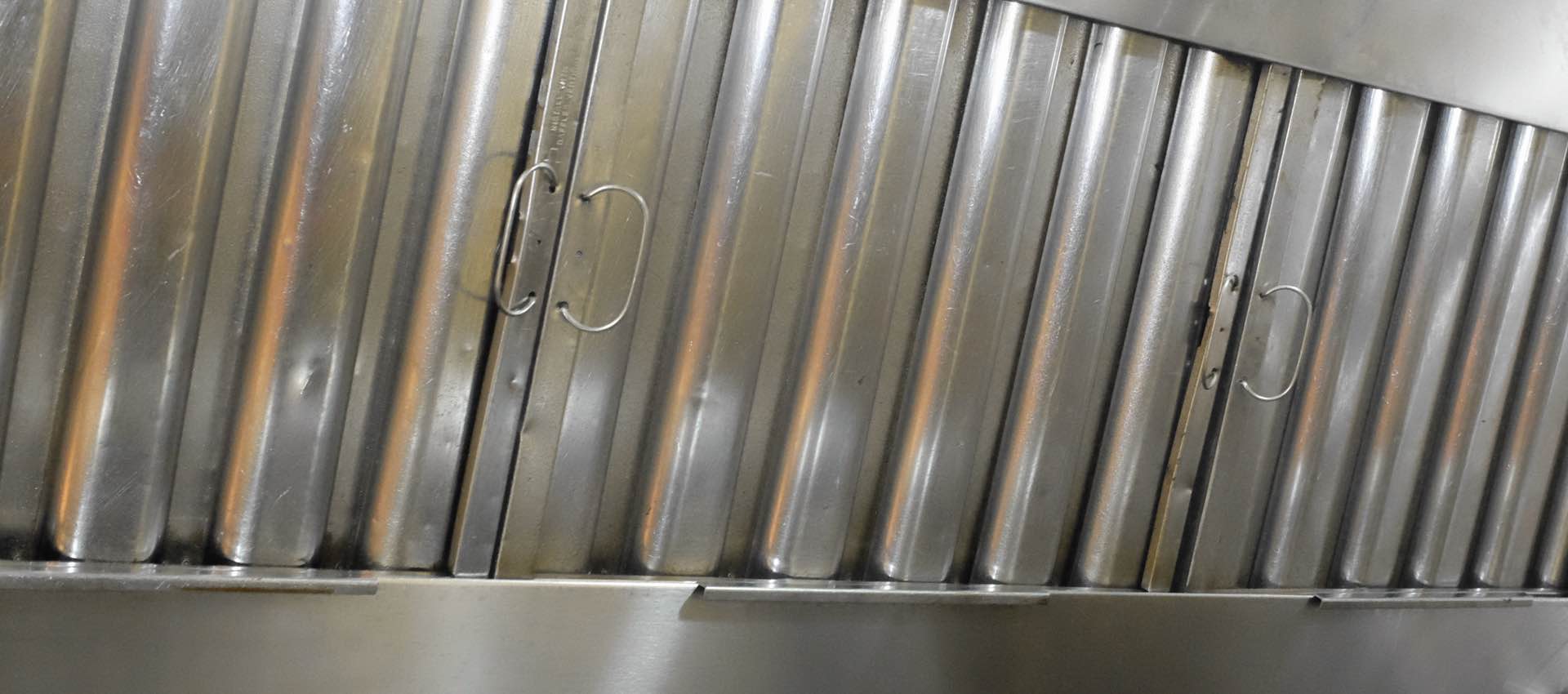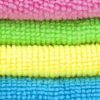Typically made from aluminum or stainless steel, baffle filters – often called hood filters – function by forcing grease-saturated air to quickly and repeatedly change direction as it rises through the filter. Because the grease droplets cannot change directions as rapidly as the air carrying them, they end up condensing and sticking to the metal blades and then draining into the filter tray. This also drastically reduces the risk of spreading flames should a fire break out on the cooking surface below.
NFPA 96 states that grease removal devices need to be maintained on a more frequent basis than the rest of the system, due to the following risk factors:
- Grease is fuel for a fire that may start below the filters and allow the fire to spread to the duct system.
- A grease-clogged filter does not allow the system to “breath” properly and can cause premature failure of the fan motor due to excessive use. Additionally, continuously running the fan will cause an increase in your electric bill.
- Smoke can escape outside of the kitchen, creating unpleasant odors for employees and guests.
- Dirty filters contribute to costly repairs to the entire kitchen exhaust system.
Whether you choose to clean the filters yourself or hire a vent hood cleaner to do the job, this maintenance task should take place monthly, weekly or even daily depending on your cooking volume and type of facility.
Preventing an excess amount of grease build-up ultimately helps to reduce your risk of kitchen fires and prevent the need for costly repairs. Maintain a clean kitchen and promote safety by making baffle hood filter cleaning a top priority. And remember, if your baffle filters have become damaged in any way, it’s important that the filters are replaced immediately.




